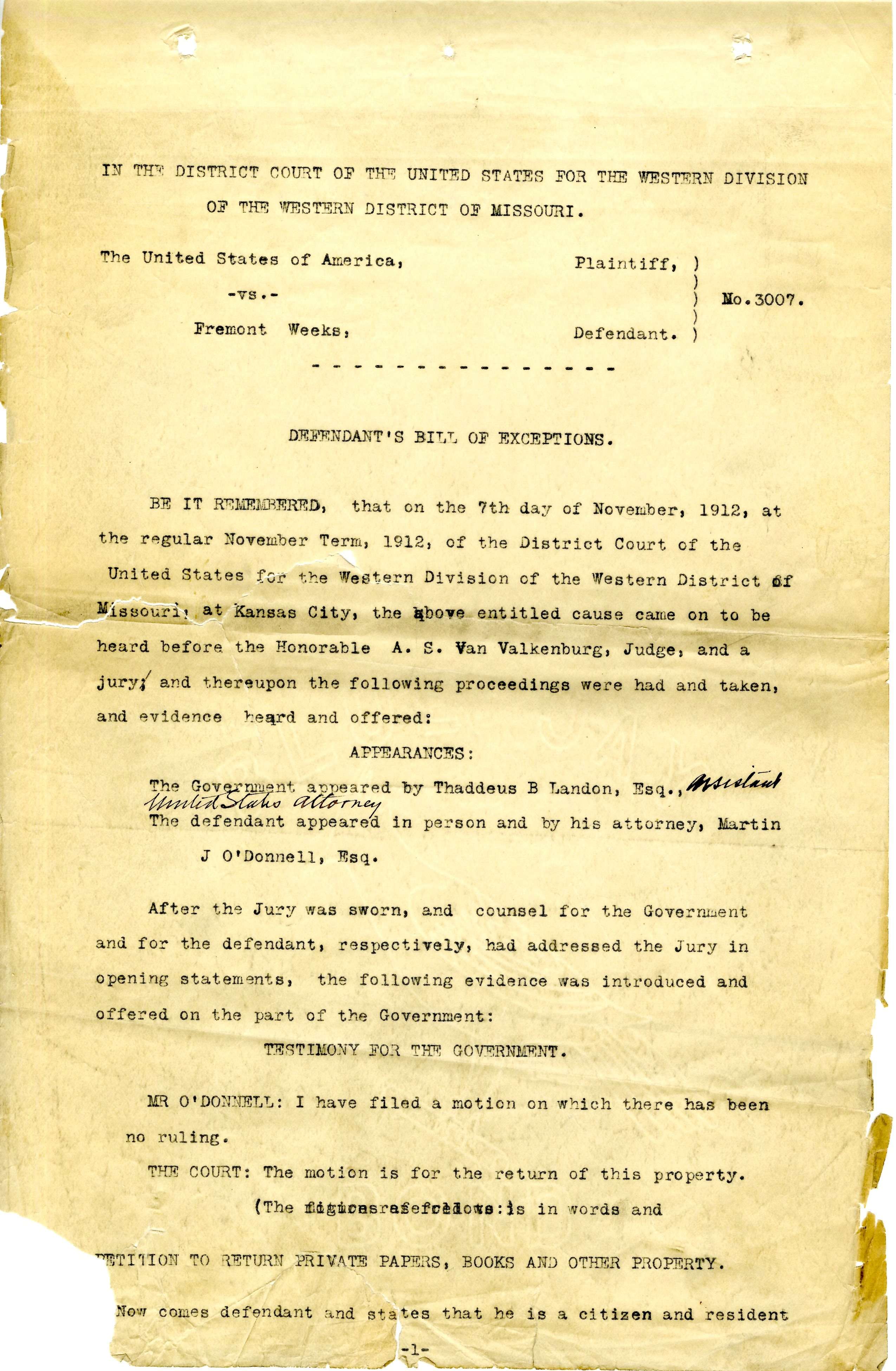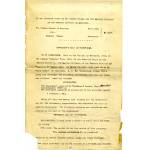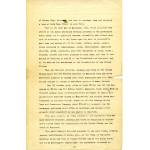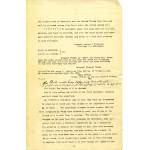Defendant's Bill of Exceptions
11/6/1912
Add to Favorites:
Add all page(s) of this document to activity:

Add only page 1 to activity:
Add only page 2 to activity:
Add only page 3 to activity:
This document comes from the court case The United States v. Fremont Weeks. Weeks had been indicted on charges of gambling and using the U.S. Postal Service to distribute chances in a lottery based on evidence obtained without a search warrant. During his trial, his attorney filed this motion requesting that all evidence seized by law enforcement be returned to Weeks.
On December 21, 1911, Fremont Weeks was arrested while on the job at Union Station in Kansas City, Missouri. Police suspected that Weeks was selling and “transmitting chances” in a lottery, which at the time was considered gambling, an illegal action in Missouri. He was taken to the police station and searched. Officers found paper, a pencil, and lottery tickets. While Weeks was being held at the station, police officers drove to his residence at a boarding house, and entered his room with help from a neighbor. They found a leather suitcase containing stock certificates, a memo book, receipts, a wallet, and a tin box. They seized these items, without a search warrant, and turned over the evidence to the U.S. Marshal. Officers later returned again, were admitted by another boarder, and found incriminating letters written by customers placing orders for lottery tickets. The items were seized because the officers believed they proved that Weeks had violated federal law by using the U.S. mail to distribute lottery tickets.
Weeks's attorney argued that the police officers and the U.S. Marshal had unlawfully, and without a search warrant, entered Weeks’s home and seized property in violation of the Missouri Constitution and the Fourth and Fifth Amendments to the U.S. Constitution. He said the property should be returned and that it should not be admissible during the trial.
The judge disagreed, ordering that all incriminating evidence should stay in the District Attorney’s custody. Weeks was found guilty by the jury of illegal gambling, ordered to pay a $100 fine, and sentenced to six months in jail. Immediately following sentencing, his attorney appealed the decision to the United States Supreme Court.
Weeks v. The United States was argued before the Supreme Court in December, 1913. The Court overturned Weeks’s conviction by a unanimous vote — not because he was innocent of the charges, but because the evidence that had been used to convict him had been obtained without a search warrant and was thus a violation of the Fourth Amendment protecting him against unreasonable searches and seizures.
In the Court’s opinion, delivered on February 24, 1914, Justice William Day further explained:
On December 21, 1911, Fremont Weeks was arrested while on the job at Union Station in Kansas City, Missouri. Police suspected that Weeks was selling and “transmitting chances” in a lottery, which at the time was considered gambling, an illegal action in Missouri. He was taken to the police station and searched. Officers found paper, a pencil, and lottery tickets. While Weeks was being held at the station, police officers drove to his residence at a boarding house, and entered his room with help from a neighbor. They found a leather suitcase containing stock certificates, a memo book, receipts, a wallet, and a tin box. They seized these items, without a search warrant, and turned over the evidence to the U.S. Marshal. Officers later returned again, were admitted by another boarder, and found incriminating letters written by customers placing orders for lottery tickets. The items were seized because the officers believed they proved that Weeks had violated federal law by using the U.S. mail to distribute lottery tickets.
Weeks's attorney argued that the police officers and the U.S. Marshal had unlawfully, and without a search warrant, entered Weeks’s home and seized property in violation of the Missouri Constitution and the Fourth and Fifth Amendments to the U.S. Constitution. He said the property should be returned and that it should not be admissible during the trial.
The judge disagreed, ordering that all incriminating evidence should stay in the District Attorney’s custody. Weeks was found guilty by the jury of illegal gambling, ordered to pay a $100 fine, and sentenced to six months in jail. Immediately following sentencing, his attorney appealed the decision to the United States Supreme Court.
Weeks v. The United States was argued before the Supreme Court in December, 1913. The Court overturned Weeks’s conviction by a unanimous vote — not because he was innocent of the charges, but because the evidence that had been used to convict him had been obtained without a search warrant and was thus a violation of the Fourth Amendment protecting him against unreasonable searches and seizures.
In the Court’s opinion, delivered on February 24, 1914, Justice William Day further explained:
If letters and private documents can thus be seized and held and used in evidence against a citizen accused of an offense, the protection of the Fourth Amendment, declaring his right to be secure against such searches and seizures, is of no value, and so far as those thus placed are concerned, might as well be stricken from the Constitution.Three pages from this case are shown. See the entire case in the National Archives main online catalog. This document is featured in the primary source-based student workbook "Putting the Bill of Rights to the Test."
This primary source comes from the Records of District Courts of the United States.
National Archives Identifier: 12011232
Full Citation: Defendant's Bill of Exceptions; 11/6/1912; The United States v. Fremont Weeks; Criminal Case Files, 1879 - 1987; Records of District Courts of the United States, Record Group 21; National Archives at Kansas City, Kansas City, MO. [Online Version, https://www.docsteach.org/documents/document/defendants-bill-of-exceptions, April 20, 2024]Rights: Public Domain, Free of Known Copyright Restrictions. Learn more on our privacy and legal page.






